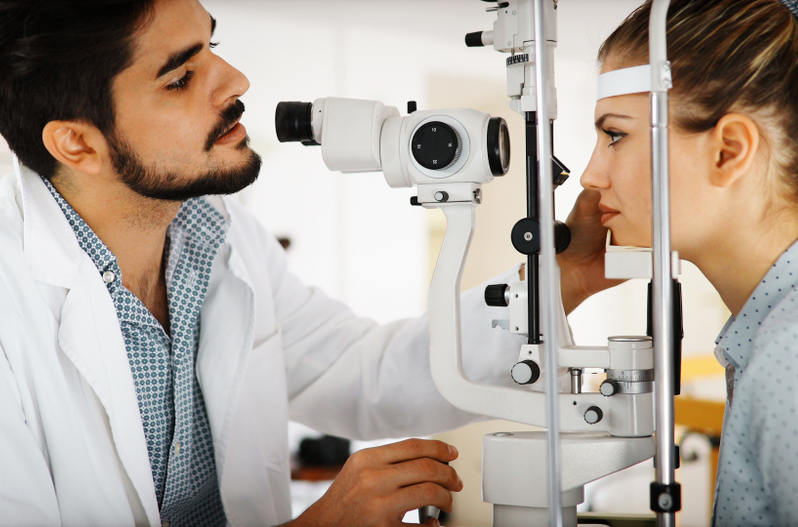The Role of Genetics in Eye Disease
Usually, multiple factors are at play when it comes to developing vision-threatening disease. One factor that has been identified as playing a significant role is a person’s genetics. In fact, glaucoma and age-related macular degeneration (AMD) are two of the most common causes of vision loss, and researchers have discovered a strong genetic component in the development of both diseases.

Genetics and Glaucoma
Often referred to as "the silent thief of sight" because it has no symptoms in its earliest stages, glaucoma is an eye condition involving increased pressure in the eye that is caused by a buildup of fluid. Over time, this pressure causes permanent damage to the optic nerve, which is is responsible for transmitting signals from the eye to the brain. This results in vision loss.
While it’s still unclear exactly how glaucoma is inherited, a clear genetic component has been identified.We know that the younger the individual is diagnosed with glaucoma, the higher the chance there is a direct gene which is the cause. Studies show that if you have glaucoma, your risk of a first–degree relative also having the disease increases 5-10 times. There are now close to 30 genes which have been identified to increase risk for primary open angle glaucoma, the most common kind of adult glaucoma.
Genetics and AMD
Age-related macular degeneration (AMD) is a condition of the central portion of the eye’s retina, which is known as the macula. Globally, it is the leading cause of vision loss and is responsible for 50% of visual impairment. With macular degeneration, central vision is progressively lost. You won't be able to see details no matter how close or far, but your peripheral (side) vision will still be normal. This renders you unable to perform certain tasks such as reading or driving, dramatically affecting your quality of life.
Studies have shown that your chances of developing macular degeneration are 3-4 times higher if you have a parent, child, or sibling with the disease. While not all cases of macular degeneration are inherited, certain genes have been strongly associated with a person's risk of age-related macular degeneration, and genetic predisposition may account for half of all instances of age-related macular degeneration in the United States.
What Should I Do if I Have a Family History of Eye Disease?
Unfortunately, most vision-threatening diseases have no symptoms in their early stages. However, that doesn’t mean you don’t have options. Ensuring you get regular eye exams and being aware of the risk factors you CAN control (diet, exercise, smoking) will go a long way in keeping your eyes healthy.
Many of the most serious eye diseases can be treated effectively if diagnosed early. In fact, 90% of vision loss is preventable when caught early enough. Working with your eye doctor in identifying any history of eye disease and taking action early will help you maintain healthy vision for years to come!
